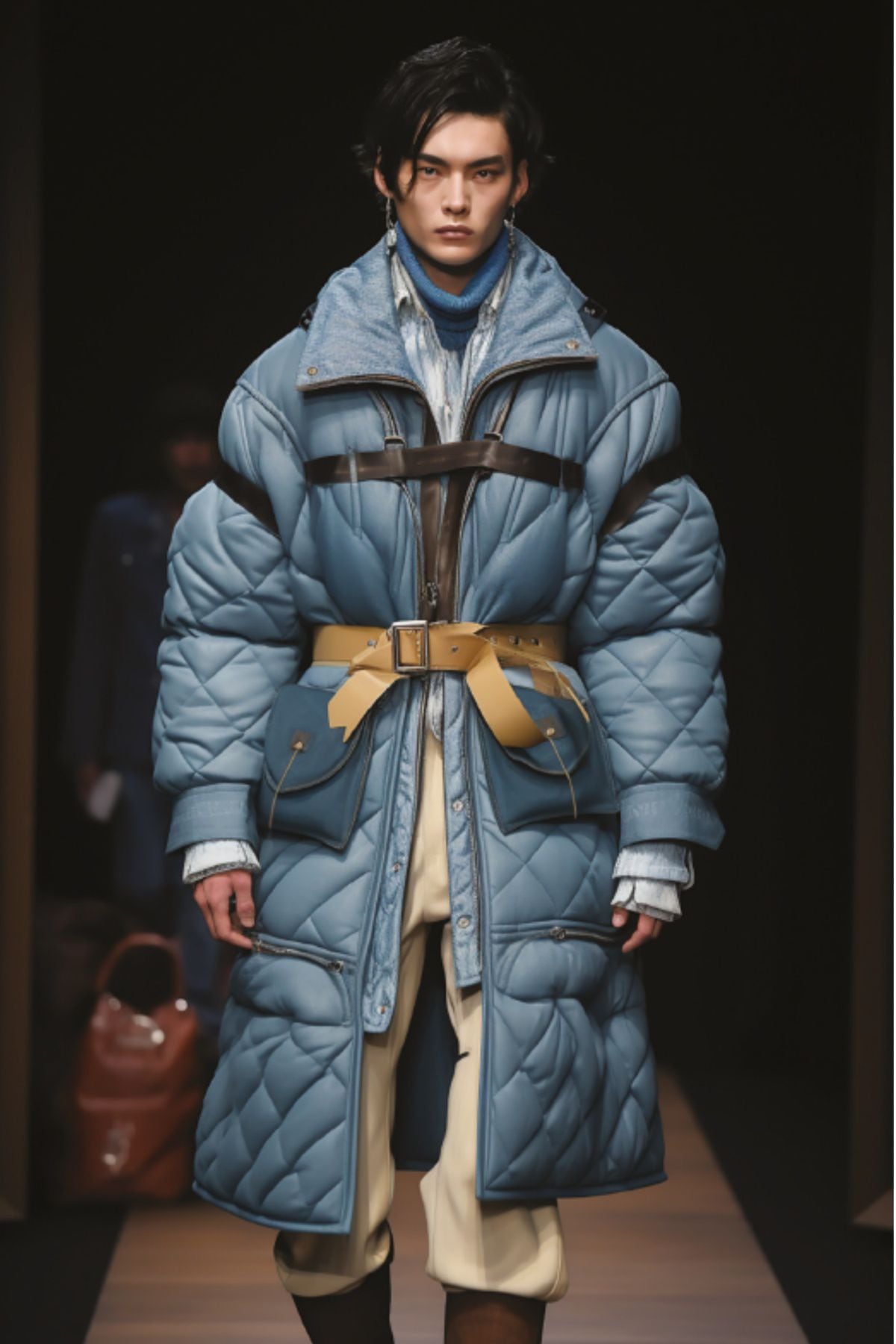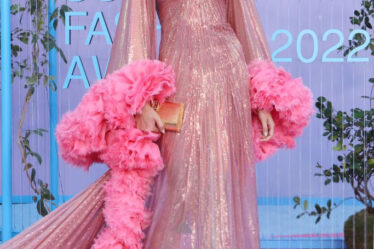
The impact of artificial intelligence on the creative industries is a subject that has prompted widespread anxiety about job losses and the death of imagination, and the world of fashion is no exception.
But this month’s London fashion week, marking the event’s 40th anniversary, will showcase a host of AI-generated outfits and industry insiders have expressed a growing optimism about what the technology can do for the sector – from improving diversity to shortening the path from design desk to shop floor.
The head of London College of Fashion’s Innovation Agency, Matthew Drinkwater, believes AI will prove a “hugely beneficial tool” for creative processes and for the industry as a whole.
“It has opened the door to non-traditional pathways into the fashion industry for people who couldn’t get into it before because, let’s face it, the industry can have a perception of feeling quite elitist and quite exclusive, and an expensive industry to get into,” he said.
“But these tools are allowing people from very different backgrounds to begin to have a foothold in the industry. And for me, that feels really new and exciting,” he added.
Brands such as Heliot Emil, Zara and H&M are already using AI to control supply chains, which they say promotes sustainability by reducing overstock and waste. Many brands are also using AI to help the design processes, with images of clothes generated from typed prompts, visualising different materials and patterns. This allows designers to make informed decisions before physically producing clothes.
The consultancy McKinsey predicted last year that generative AI – the term for technology that can produce convincing images, text and audio from simple human prompts – could add $150 billion to $275 billion (£120bn to £220bn) to the operating profits of the fashion and luxury sectors within the next three to five years. Predicting future fashion trends and creating virtual try-ons using AI are also predicted to be just around the corner.
Drinkwater has been working with his team to look at how AI could change the industry, testing generative AI’s ability to create clothing for years. “We were scraping websites to try to get lots of data so that we could create dresses from more than 40,000 images. It was actually really hard work to do four years ago but now we open our laptops, even our smartphones and start generating images very quickly,” Drinkwater said.
A collaboration between VFX and AI artist Atara and the Fashion Innovation Agency at the London College of Fashion in March 2023.
“So typically, we take stuff which is maybe three to five years away from commercialisation and begin to show those research projects around where the future of the industry might move to,” he added.
In April last year Cyril Foiret’s generative AI studio, Maison Meta, hosted the first AI fashion week in New York, which included a competition for aspiring designers to use AI to create a fashion line. The winners were able to have their collections physically manufactured to be sold online with retailer Revolve. As in other industries, AI has come to be associated with job redundancies and critics argue creative artistry could be wiped out. But Foiret argues that there is little to fear.
“AI is such a powerful tool that is amplifying creativity. People thinking jobs are going to reduce shouldn’t think like that. We all just need to get accustomed with the tools, but if it is just a tool without a person behind it, it’s of no use,” he said.
Arti Zeighami, a former chief data and analytics officer at H&M and now senior adviser in AI for consulting firm BCG, agrees that AI can be used as a force for good within fashion. “Being transparent about AI helps people to not be afraid and allows them to be comfortable and still feel in control, it’s the transformation of the mindset of the human that is important,” he said.
“The AI will evolve as a technology either way we need to evolve alongside with it, but we haven’t come to the terminator stage not yet, at least.”
The TUC’s AI lead, Mary Towers, said AI could be a useful aid for workers in the creative sector, but that it shouldn’t be hijacked to replace human creativity.
“We need new laws to ensure that all workers in the arts – including fashion – are consulted and properly compensated if their work and intellectual property is used by AI,” she said.
“We have already seen performers in the UK having their image, voice or likeness reproduced by AI technology without their consent. We can’t afford for this to become the norm in other industries too. That’s why we urgently need fresh regulation to protect workers’ creativity and copyright.”
By Nyima Jobe



